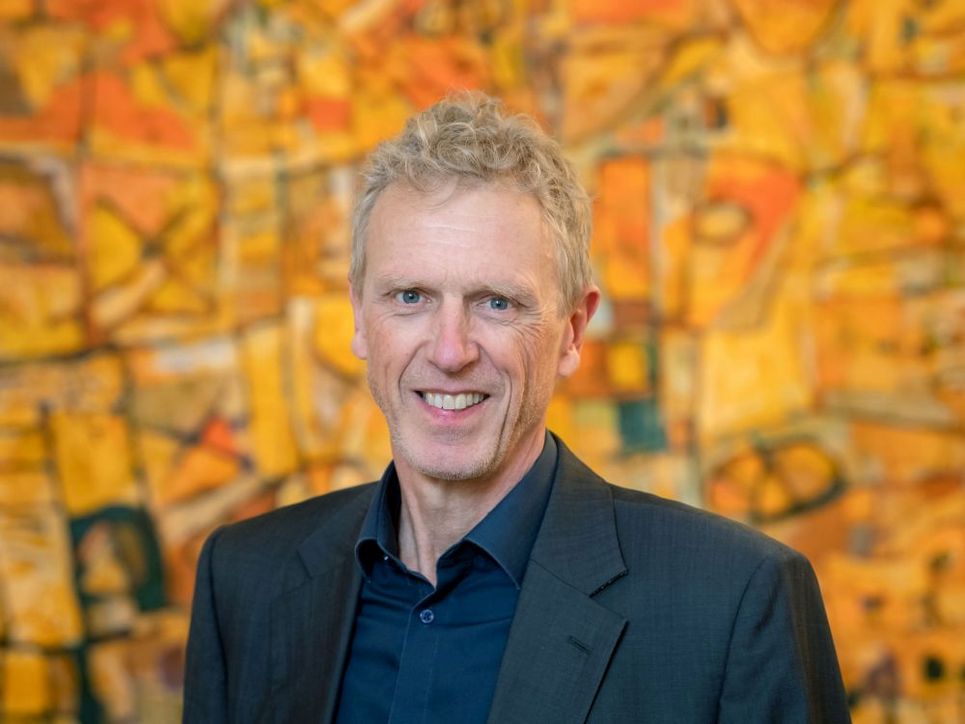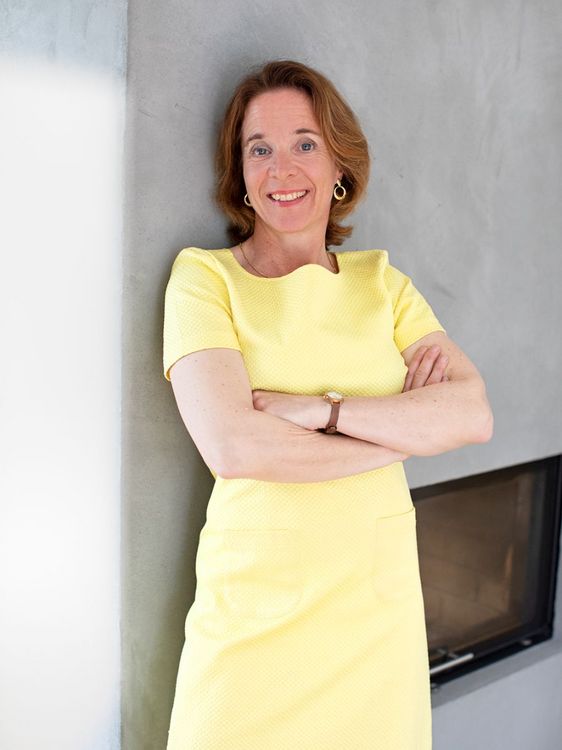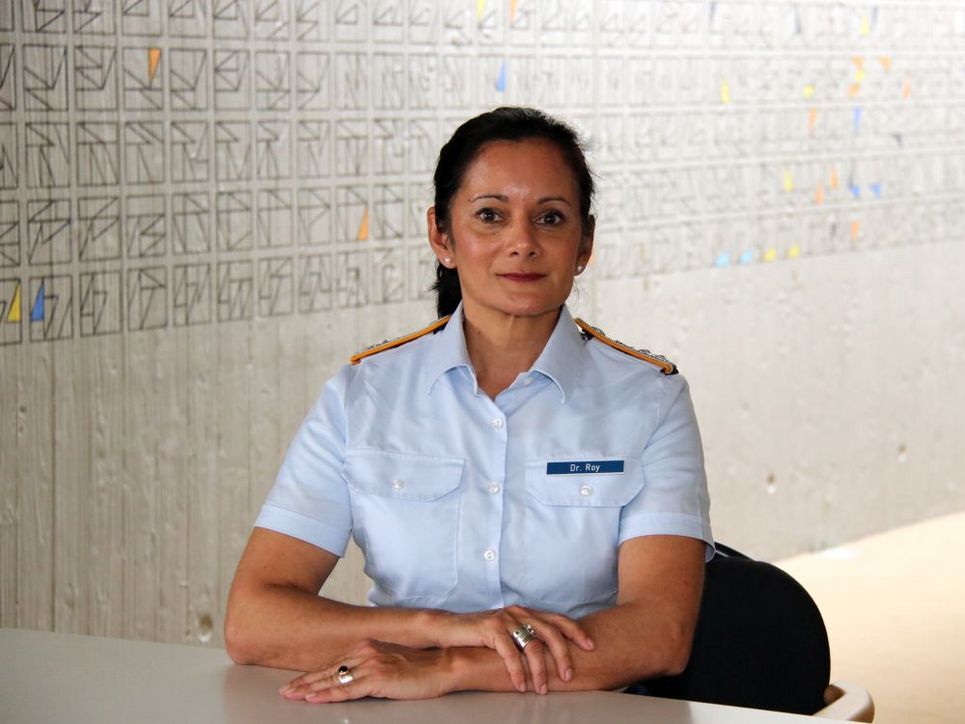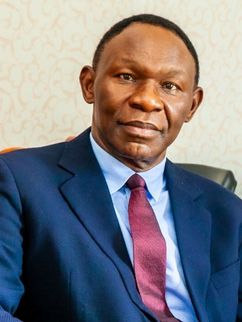Mental stress risks in the workplace are a serious problem. They reduce people’s quality of life, can make them ill – and, in the long run, can even be a threat to life. How can we build resilience? Is the mental health of career starters particularly at risk? What structural changes are necessary? We spoke to a doctoral researcher, a resilience researcher and three managers from the fields of science, industry and the armed forces.
LEIBNIZ Ms Cossmann, Ms Gilan, Mr Lentz, Ms Roy, Ms Saxena, mental health risks have increasingly become a topic of public debate in recent years – in relation to early-career scientists but also in a wider context. Is this justified?
STEPHANIE COSSMANN The number of people suffering from psychological limitations or burnout has risen by more than 50% in the past four years. This is a dramatic problem – for German industry too, because we already have a shortage of labour in some areas. If we don’t do something about this issue, it will become a major problem situation. We need to address it and find solutions, particularly for career starters, but also for people who have been in their jobs for a while.
RUBINA ROY I agree. Across our armed forces personnel, I can say that people’s mental health really is increasingly under pressure. This is reflected in health reports around the world, especially in industrialised countries. If we look at absences resulting from illness, this is something we can no longer ignore. It is alarming that these absences are rising steeply even among 20 to 24-year-olds. If young people are exposed to massive mental stress even at the start of their careers, they may not remain in employment for their entire working lives. This is an increasing problem for society because we are losing this group of skilled workers.
Are career starters mentally less resilient than before? Why are these figures rising so steeply?
DONYA GILAN The stress factors affecting doctoral researchers these days are many and varied: the high pressure to publish, for instance, the short-term employment contracts and the fierce competition in academia. Poor conditions for combining work and family life, and increasing work requirements and checks are also linked to the rise in mental health problems. People report feelings of constant unhappiness and stress, depression and sleep problems – and the inability to enjoy everyday activities. Traditionally, universities were seen as low-stress environments. However, more recent studies on occupational stress among academics indicate that it is not only alarmingly widespread, but is actually increasing. People’s hesitation to seek help can often be traced to a fear of stigmatisation or retaliatory actions, or an expectation that there will be negative consequences for their future career.

SEBASTIAN LENTZ With regard to early-career researchers, we really are seeing an objective increase in uncertainty, pressure and stress, and there are structural reasons for this. When engaging with their supervisors, doctoral researchers experience something like self-efficacy as a result of the direct feedback they receive – but this is not the case when your career depends on the decisions of anonymous peers in the review process for PhD-related publications. It is a process in which the quality of the work is often judged in an opaque manner, or at least without any personal contact. I would characterise that as a very, very difficult situation that has arisen as a result of extending the competitive system.
Pankhuri Saxena, within the Leibniz Association’s PhD Network you advocate for doctoral researchers to receive more support. Which structures make life difficult for PhD researchers?
PANKHURI SAXENA There is a higher-than-average incidence of symptoms of depression and anxiety among doctoral researchers. This is partly because they are usually very ambitious, intrinsically motivated individuals who have high expectations of themselves and of their work. At the same time, the academic system places high demands on them: research is a slow process that requires a great deal of patience and depends on many factors over which one has no influence. Projects often do not go to plan and that is very frustrating. Then there are uncertain career prospects, fixed-term employment contracts and, in some cases, opaque pay conditions. Moreover, there is no clear job description. You just know that you’re a doctoral researcher. A specific job description does not form part of the contract, which leads to unrealistic expectations. Over time, as doctoral researchers realise how restricted their options are and come up against limits, this creates more stress.
Ms Cossmann, problematic structures cause issues not only for junior staff, but also for their supervisors. What are the most stressful situations that you have had to deal with as a manager in industry?
COSSMANN Firstly, there were situations where I had to tell people that they would have to change the way they had been doing their jobs for the past 40 years. Presenting that to them as an improvement, an advantage, was really difficult for me. The second major challenge was during the Covid pandemic, when I had to reassure my employees in what was a totally uncertain situation generally. Sometimes it wasn’t clear what would happen the next day: should people come to work or not? As a manager, I like the idea of coaching people, listening to them and saying: I see you, I hear you, let’s talk about your problems. At a time when I was dealing with great uncertainty myself as a manager, that was difficult. We were under extreme pressure ourselves.
Ms Roy, the psychological risks you have to deal with could hardly be more extreme: as a health manager with the Bundeswehr, some of the people you look after are soldiers who take part in military operations in wartime. What do these people have to cope with?
ROY A war scenario is a form of psychological stress that presents extreme challenges for resilience. Sometimes we send people on six-month tours of duty and that sometimes means being completely cut off from any means of contacting family and friends. This is stressful not only for the soldiers, but also for their families at home.
What specific conditions do soldiers have to come to terms with?
ROY An example from my own life: I was in Afghanistan and for several days I was unable to contact my family at all. They just saw the battle images on their screens and had no idea how I was. Then there’s life in military accommodation, which is particularly challenging because you’ve got several people working shifts and sharing a room. Or you’re driving around in a tank and sleeping in it, so personal hygiene options are severely limited. The lack of privacy can be stressful. And you can never predict what will happen on operations like those, and that’s a major challenge for the soldiers, but also for their families.


A question for everyone: Do you have the feeling that the topic of mental health is being taken seriously enough in society now?
LENTZ From my point of view, society as a whole is now more prepared to accept emotions in work contexts. That’s something that used to be completely suppressed. For instance, in academia, for a long time it was simply accepted that many young researchers did not cope long term with the stress associated with a doctorate and dropped out of the system. Since then, our view of this situation has changed and I find this societal shift very important. We are, rightly, no longer prepared to accept this kind of sacrifice of young people and their careers.
SAXENAI think we are in a transition phase. The fact that we talk so much more now about mental health than we did in the past shows that we are moving towards a future in which mental health risks will finally be taken more seriously. However, in my opinion, there is still a lot to be done in relation to academia and doctoral projects. As doctoral researchers, we still hear: that’s the way things are structured. We had to live with it; now you have to live with it. This needs to change.
COSSMANNFrom an industry perspective, rising absences due to mental health problems are leading to lost working hours. If we want to bring people into the workforce and ensure that they cope with working life successfully, this is something we cannot simply ignore. Fortunately, in industry at least, we can see that mental resilience is gradually being taken seriously. People are developing resilience programmes and running training courses. But that is just a first step in the right direction. If we don’t pursue it, we will face major problems: people will drop out because they don’t want to work in this kind of environment – or they will fall seriously ill because they can no longer stand the pressure.
Ms Gilan, you are an expert on mental resilience. Can resilience-building and prevention measures help ensure that things don’t reach that point?
GILAN The high prevalence of mental health problems among doctoral researchers is extremely important, both in terms of individual suffering and the costs for the organisation and society. In the long term, it will also have an impact on research itself. Decision-makers in research should therefore focus more on prevention, develop mental health competence and raise their own and their employees’ awareness of the issue. This is the only way to recognise and deal with problems in good time. In addition, political decision-makers with responsibility for research should engage with current models of research funding and today’s employment conditions, resolve weak points and purposefully create conditions that build resilience – for instance by promoting a health-focused leadership style.
Someone who is aware of personal mental, social and structural resources, is better able to master stressful situations.
DONYA GILAN
How must workplaces in general be designed to be conducive to mental health? Let’s take a university, for example.
GILAN Measures we can mention include showing appreciation and ensuring employees have a scope of action and opportunities to take part in decision-making processes. We also need managers who check how their employees are every day. In a first step, the university should formulate a resilience concept. This should contain clear goals, measures, resources and information and communication strategies. It must also set out responsibilities. The next step is to actively explain the importance of academic resilience and resilience-building measures. For instance, doctoral researchers should be encouraged to take up offers such as coaching and counselling services, because one way of strengthening their resilience is by expanding their social network. When they are aware of their own personal mental, social and structural resources, they are better able to master stressful situations, and respond with resilient behaviour.
Mr Lentz, within a task force on mental stress risks, you and your fellow campaigners asked the Leibniz Association institutes about good practices for improving working conditions for early-career researchers. What were the most interesting responses?
LENTZ I must admit that I was expecting mostly complex measures – training courses, measures for raising awareness of mental health issues. And we did get some answers like that, of course. But what made the biggest impression on me were two very simple suggestions. The first is to introduce early-career researchers to their social group as early as possible. This was something I had taken for granted until then, but it appears that it is not practised in every institute. And yet it is so important to have a group of like-minded people you can talk to.
And the second suggestion?
LENTZ To communicate more openly: management staff are often under a lot of pressure and feel socially responsible for the young researchers, but their efforts are not transparent. They forget that they are dealing with adults. Young researchers have chosen this career path themselves. There needs to be an open, transparent discussion on an equal footing about how everyone involved sees the situation. It’s that simple.

Ms Saxena, in your view, what structural improvements could help reduce the pressure on doctoral researchers? What helps you personally to cope well with the doctoral phase?
SAXENA Doctoral researchers are often completely dependent on the individual supervising their project. This is the person who will mark their work and help them with their future career – or not. Because of this, doctoral researchers often don’t dare to speak openly or make complaints. At my institute we have found a solution to this problem: doctoral researchers are assigned a dissertation committee consisting of a supervisor and two other faculty members who provide academic support and offer space to discuss problems. For me personally, it helps to take frequent breaks. Conversations with my colleagues are also very helpful.
A question for all of you: What do we need to put in place as a society to safeguard mental health at work in the long term – both at the start of a career and beyond?
LENTZI see a link to the question of whether society is taking mental health seriously enough now. To be honest, I found the answers rather frustrating because what I see is a lot of effort being invested in something that I would call attempts to patch things up. But we are not tackling the root of the problem. The English word labour comes from the Latin laborare, which means not only to work, but also to suffer. And so long as we continue to organise our work as laborare we will continue to be in patching-up mode. If we were to use the philosophical or humanitarian argument instead, we would have to fundamentally change our understanding of work.
In what way?
LENTZ We wouldn’t see the individual in economic terms, we wouldn’t protect mental health purely because we expect economic advantages that will make society more efficient in the competitive global economy. My suggestion is that we see mental health as a human right and look for answers to the question of what is a successful life. This is where managers should be focusing their power, in my view. This would be my radical idea.
GILAN I too think we need something like a paradigm shift. New concepts and specialist disciplines, educational establishments and our notions of health in general will play a role in this. To make the concept of resilience really fruitful, we should not only ask about individual protection factors and how the individual can improve, but also how one can improve certain social structures. There are many vulnerable occupational groups and sections of the population that face multiple stresses and live in unacceptable conditions. Not everyone has the opportunity to participate in society. So I would definitely support a more radical approach, as suggested by Mr Lentz.

Who do you believe is responsible for instigating these changes? And how can change be achieved?
ROYI think various groups are already advocating for change, but maybe they are not being heard enough yet. And we mustn’t forget that there are already mental health structures in the workplace. For instance, companies have a legal obligation to carry out risk assessments for mental stress at work – on an individual basis. Evaluating these and developing specific measures, for instance in workplace health management, is something that is not being followed through sufficiently in practice in my experience. The discussion today also shows that sharing views between different professions is something that should be pursued. The federal government’s sustainability strategy paper, which includes mental health, would provide a good basis for this, in my view. Generally, I believe we need to pursue our ideas – each one in their own area of expertise, but also together – and learn from one another.
LENTZ I see it as a political process in which we also need to answer the question: how do we actually want to live as a society and treat one another? We often worry about the rifts we see in society. We could maybe think about whether there is also a rift between the people who have the power to deal with the unreasonable demands of everyday life and those who are excluded from resilience measures. Because so long as there is no overall policy solution, I believe we must also always ask whether the issue we are considering affects everyone equally. And an overall policy solution will not be easy to implement because we can see how naturalised our concept of work has become. It is deeply ingrained in our social practices and that can’t be changed in a hurry. Nevertheless, I share your optimism, Rubina: it’s great that we have spoken here together and exchanged views. I must say I have gained a lot from it.
COSSMANN I agree with you completely that we need a cultural change. But for me the question is: what comes first? Don’t we need to proceed step by step? Doesn’t each one of us need to raise our voice and do what they can? If we wait for something major to happen, we will be waiting forever. This is why I’m a big fan of setting a good example to make progress. We have influence and can make a difference. I think we really do need both: the little changes and the cultural shift, but the one comes after the other – and we can all do our bit.
We need to establish a system in which personality and skills match the work.
STEPHANIE COSSMANN
SAXENA I often ask myself that – in what scenario would people be productive, happy with their lives, mentally and physically healthy, and feel socially integrated? In my view, the first step would be to establish a system that considers the individual competences of career starters. It would also need to be a system in which their personality and skills match the work they do, and which at the same time encourages them to develop as individuals. Maybe that’s a bit naive but we are talking about the ideal workplace, so we can allow ourselves to dream a little and take this utopian idea as a benchmark.
ROY I am a very pragmatic person. For me, it’s appreciating little things and the appreciation that you can experience between colleagues that make an ideal workplace. So it’s not about the major project success, but maybe thinking every evening: what went well today? That’s something that I always tell my four children too: to end the day with a positive thought - both in your professional life and when you’re at school. Establishing this kind of culture would be ideal for me.
COSSMANN I think that’s a nice vision – and, in my view, it will soon become reality because the shortage of workers we will see on the market will automatically change the way we work and what people demand of their managers and their work environment. Managers will have to change and employees will have to be clear about what they want and advocate for it. Both of these things are already underway. So I am confident that we will see this change and that it will bring many benefits, both for society and in terms of economic development.
GILAN I would add diversity as an important factor – not only in relation to the personal characteristics of an individual, but also, for instance, in relation to mindset, lifestyle and communication style. In addition, social support and inclusion are indispensable: people who have a difficult start in life should be integrated in the workplace in such a way that they have the same opportunities to develop within an organisation. Participation options are extremely important because that is how people develop intrinsic motivation and find personal enjoyment in their work.
LENTZ There’s not much to add to that because everything you’ve said is totally correct. Just this: what I wish is that all these small steps and measures that we’ve outlined here today won’t act like tranquillisers and contribute to inactivity in society. Instead, I hope that they will develop a dynamic of their own so that they really do help to bring about changes.
HOW CAN I DEAL WITH STRESS DURING THE PHD?
Sebastian Lentz spent a year collecting answers to this question in a task force and coordinated closely with the Leibniz institutes and the Leibniz PhD Network, of which Pankhuri Saxena was the spokesperson at the time. The result, the Leibniz guide "Mental Health during the PhD”, bundles recommendations for doctoral researchers, their supervisors and institutes. The focus is on three fields of action: Raising awareness, prevention, and counseling. Awareness is built in a working culture characterized by attentiveness and care that can be fostered through information events and trainings. In such a sensitized work environment, mental illness is not a taboo and can thus be identified and addressed at an early stage. It lays the groundwork for preventive measures that ideally are anchored in graduate school curricula and take into account specific challenges that, for example, international doctoral researchers or parents pursuing a PhD face. In addition, HR departments should monitor that doctoral researchers have enough time for vacation and recreation, while managers should model a positive vacation culture. Sometimes however, even good measures can fall short or come too late. In such cases, one can turn to anonymous crisis counseling centers located outside the institutes. The Leibniz Institute for Resilience Research (LIR), for example, operates the so-called Outpatient Facility for Resilience, which is open to external clients and provides anonymous counseling.



